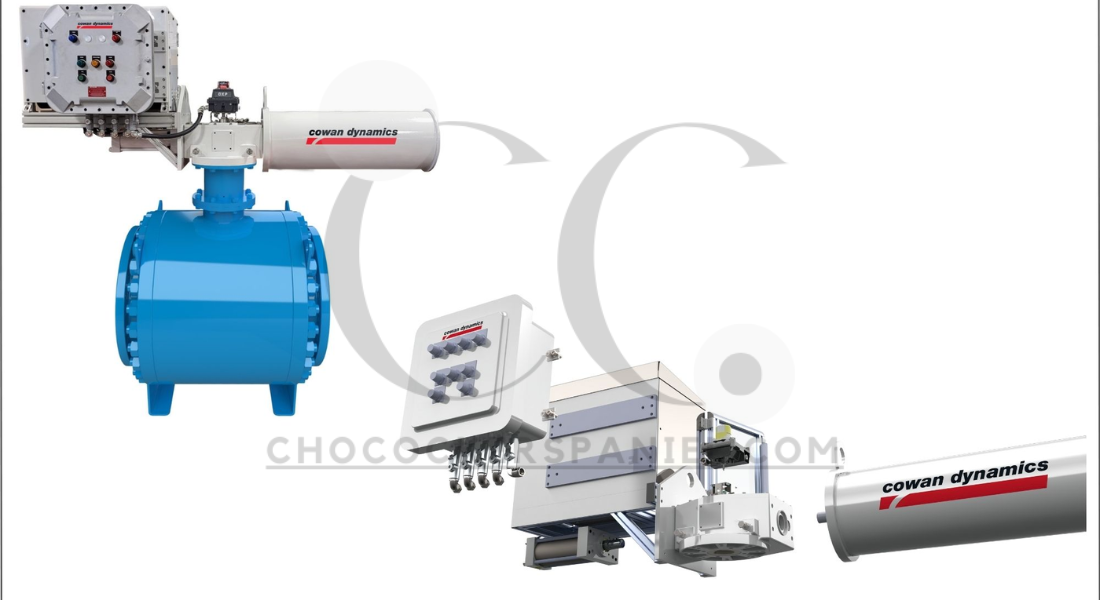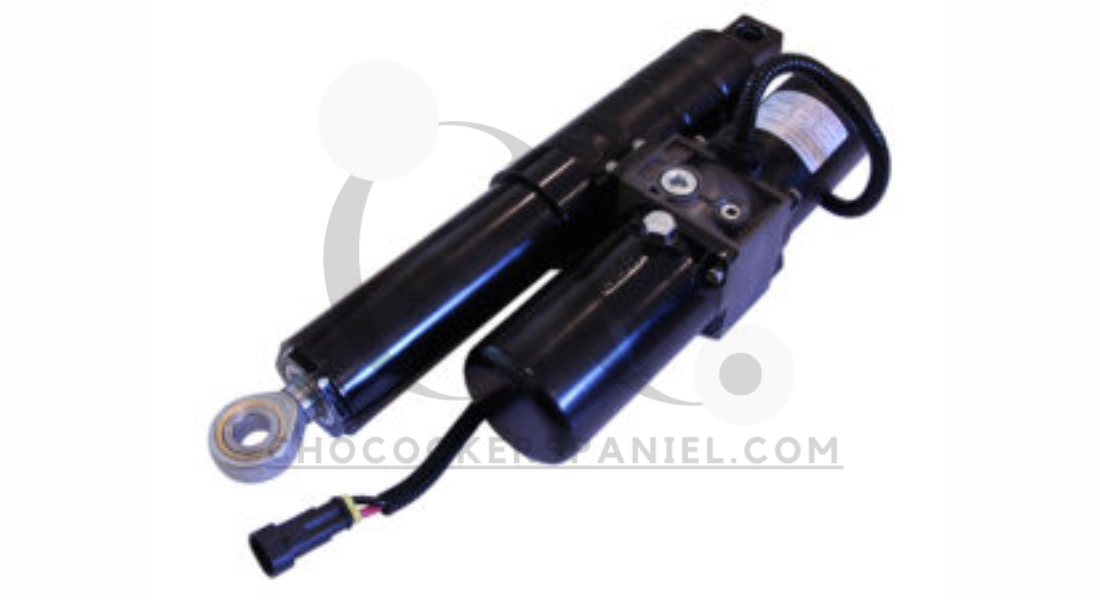Efficiency and precision are critical in modern automation systems, and the hydraulic actuator for automation has become a cornerstone of innovative engineering solutions. Combining high power density with precise control, hydraulic actuators are integral to various industries, ensuring smooth, efficient, and reliable operations.
Hydraulic Actuator for Automation: Power Meets Precision
Hydraulic actuators convert fluid pressure into mechanical force, delivering unmatched performance for heavy-duty applications. Whether in industrial machinery or advanced robotics, these actuators enable precise movement and control, making them indispensable for automated processes.
Why Hydraulic Actuator for Automation Are Vital
Adopting hydraulic actuators provides several benefits that elevate efficiency and reliability:
High Power Output
Hydraulic actuators generate substantial force, making them suitable for tasks requiring significant power, such as lifting or pressing.
Compact Design
Despite their power, these actuators maintain a compact structure, saving valuable space in automated systems.
Precision Control
Hydraulic systems allow for accurate positioning and movement, ensuring smooth operations in complex processes.
Versatility
From industrial robots to construction equipment, hydraulic actuators adapt seamlessly to various environments and applications.
Durability
Built to withstand extreme conditions, these actuators deliver consistent performance even in harsh settings.
Types of Hydraulic Actuator for Automation
Hydraulic actuators come in various designs, catering to specific automation needs:
Linear Hydraulic Actuators
These actuators provide straight-line motion, commonly used in lifting, pressing, and positioning tasks.
Rotary Hydraulic Actuator for Automation
Rotary actuators enable rotational motion, making them ideal for steering, turning, or operating valves.
Servo Hydraulic Actuator for Automation
Servo-controlled actuators deliver precise positioning and dynamic response, perfect for robotics and advanced automation systems.
Telescopic Hydraulic Actuator for Automation
Telescopic designs extend in stages, offering compact storage and extended reach for applications like cranes or excavators.
Custom Hydraulic Actuators
Custom designs cater to unique operational requirements, offering tailored solutions for specific automation challenges.
Key Features of Hydraulic Actuators
Modern hydraulic actuators incorporate advanced features to maximize performance and efficiency:
High-Pressure Capability
They handle high-pressure fluids, enabling greater force output without increasing actuator size.
Robust Construction
Durable materials and designs resist wear, corrosion, and extreme temperatures, ensuring longevity.
Integrated Sensors
Advanced models include sensors for real-time feedback, enhancing precision and control.
Adjustable Speed and Force
Operators can fine-tune speed and force to match specific operational demands.
Low Maintenance
Hydraulic systems are designed for durability, requiring minimal upkeep over extended periods.

Applications of Hydraulic Actuator for Automation
The versatility of hydraulic actuators makes them indispensable across various industries:
Manufacturing and Industrial Machinery
In factories, Hydraulic Actuator for Automation power presses, lifts, and conveyor systems, streamlining production processes.
Automotive and Aerospace
Actuators play a critical role in steering systems, braking mechanisms, and landing gear operations.
Construction and Heavy Equipment
Excavators, cranes, and bulldozers rely on hydraulic actuators for movement and load handling.
Renewable Energy Systems
In wind turbines and solar tracking systems, hydraulic actuators optimize energy generation by adjusting positioning.
Robotics and Advanced Automation
Precise control and high force output make hydraulic actuators ideal for robotic arms and complex automated systems.
Comparing Hydraulic Actuator for Automation to Other Actuation Systems
Hydraulic actuators excel in certain areas compared to pneumatic or electric actuators:
- Power Density: Hydraulic systems offer higher force output relative to size.
- Precision: They enable smoother and more accurate movements.
- Durability: Built for heavy-duty applications, hydraulic actuators last longer in demanding environments.
- Efficiency: While electric actuators excel in energy efficiency, hydraulics outperform in heavy load scenarios.
User Insights: Why Professionals Trust Hydraulic Actuator for Automation
Engineers and operators highlight the reliability, power, and adaptability of hydraulic actuators. Many appreciate their ability to handle extreme loads while maintaining precision. From manufacturing to renewable energy, hydraulic actuators are celebrated as an essential component in achieving operational excellence.
Tips for Optimizing Hydraulic Actuator for Automation Performance
To maximize the benefits of hydraulic actuators, follow these best practices:
- Select the Right Design: Match actuator type to the specific application for optimal performance.
- Maintain Hydraulic Fluids: Regularly check and replace fluids to prevent contamination and ensure efficiency.
- Monitor System Pressure: Avoid overloading by maintaining appropriate pressure levels.
- Use Quality Components: Invest in high-quality seals, hoses, and connectors to reduce downtime.
- Integrate Feedback Systems: Use sensors to monitor actuator performance and improve precision.
Future Trends in Hydraulic Actuators for Automation
Advancements in technology are paving the way for next-generation hydraulic actuators:
Smart Actuation
Integration with IoT devices and AI enables real-time monitoring and adaptive control for improved efficiency.
Energy-Efficient Designs
Innovations in hydraulic circuitry and materials reduce energy consumption while maintaining performance.
Compact and Lightweight Models
Miniaturization trends cater to space-constrained automation systems without compromising power.
Eco-Friendly Solutions
Hydraulic systems using biodegradable fluids and recyclable materials support sustainability goals.
Advanced Customization
Manufacturers are offering tailored solutions to meet the evolving needs of specialized industries.
Why Hydraulic Actuator for Automation Are a Smart Investment
Hydraulic actuators provide a robust, reliable, and powerful solution for automation. Their ability to handle extreme loads and precise movements makes them indispensable for modern industries. Investing in high-quality actuators enhances productivity, reduces maintenance costs, and ensures long-term operational success.
Conclusion: Driving Automation Forward with Hydraulic Power
The hydraulic actuator for automation is more than a mechanical component; it’s a key driver of innovation and efficiency. By delivering unparalleled power, precision, and durability, these actuators enable industries to meet the demands of today’s dynamic environments.
From manufacturing to renewable energy, hydraulic actuators continue to redefine what’s possible in automation. Embrace this technology to unlock the full potential of your systems and achieve new heights in performance and reliability.
References
- Hydraulic Actuator Design Innovations: Exploring trends and advancements in actuator technology.
- Applications in Heavy Machinery: Real-world examples from construction and manufacturing.
- Comparing Hydraulic and Electric Actuators: Key differences and use case insights.
- Tips for Maintaining Hydraulic Systems: Best practices for long-term reliability.
- Future of Actuators in Automation: Predictions for next-generation solutions.
Upgrade your systems with hydraulic actuator for automation solutions and experience unmatched performance, precision, and adaptability. Whether for industrial, automotive, or renewable energy applications, these actuators set the standard for reliable and efficient automation.
